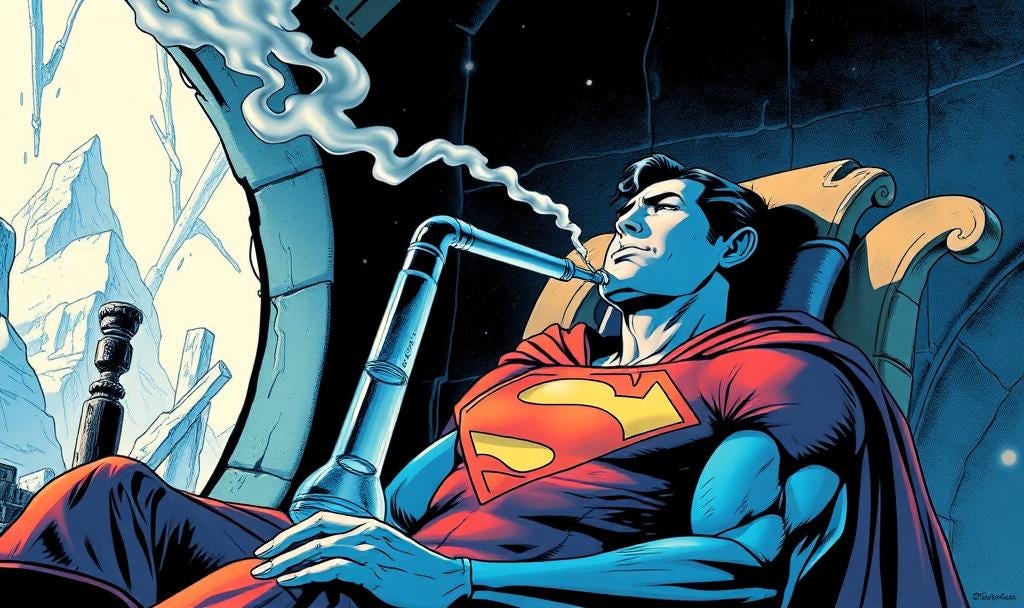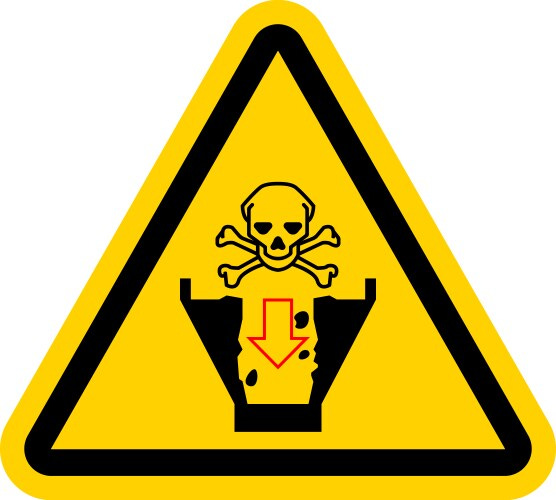On day one of my four-day stay in intensive care this past September, my wife Cat said something to me that I thought might be the thing that literally killed me.
And yes, I mean “literally” the way that word is supposed to be used. She actually opted for my actual death.
You can imagine my surprise when she did that.
Except registering surprise takes at least a modicum of energy. So I, having at that moment the energy of a geezer sloth on quaaludes in a hammock, was capable of no reaction beyond turning my head to look at her, and then closing my eyes again and praying that I didn’t hear her say what I’d just heard her say.
You think you know a person—like, forty-five years of being married to them know them—and then, when you most need them to be exactly the person whom you’ve always been so grateful to them for being, they do a 180 pivot and become someone else. It’s as if legions of warriors had arrived from Mars to destroy all human life, and just as they had begun to do that horrific thing Superman arrived on the scene, and as we were all wildly cheering our hero, the Man of Steel took his resolute, fists-on-hips stance, his red cape flying majestically behind him, and, in a voice of such resounding conviction that even the Martians stopped to listen, loudly declared, “People of earth! Fuck every last one of you losers! Have at it, Martians! And now, a righteous bong back in my Fortress of Stonitude is calling my name! I’ll be there soon, Bongalita!” and then took off flying up, up and away.
I am hoping that writing about what transpired in the hospital in that one unfathomable moment between Cat and I will help me . . . well, better fathom it.
It was about ten o’clock in the morning. I’d spent the previous afternoon and well into the night lying semi-conscious in a hospital’s emergency room, plugged into sacs of fluids and antibiotics intended to ward off sepsis caused by the pneumonia that over the course of the previous ten days had succeeded in turning my lungs into nearly useless sacks packed with crap, Jack.
Five hours into that, though, all my vital signs were still looking about like:
So they quit plan A, and went to plan “Get this dying dude up into a room in our intensive care unit.” (The only thing I remember about being transferred to the ICU was, as they were wheeling me down the hallway towards my room, coming to, seeing the lighting panels of the ceiling shoot from the bottom to the top of my vision as I passed beneath them, and thinking, Great, the last thing I’m ever going to see is something I’ve seen on TV a million times.)
Next thing I know I’ve (barely) opened my eyes to find that it’s morning and I’m alive, yet still so close to not being alive that I can hear angels whispering about my chances.
Cat, who hadn’t left my side since driving me to the hospital, was moving about our new digs at Casa de Critical Care. She’d spent the night catching what scant sleep she could in the visitor’s pea-green easy chair set in one corner of the small but ultra-utilitarian room, where she’d been made a good deal more comfortable by the warm blankets and a pillow the dear nurses had brought in for her. Now she was neatly folding those blankets and placing them on the wide window sill, setting her pillow atop them, plugging in her iPad, splashing water on her face in the bathroom, and generally preparing to do what she’d told me she would, which was to stay with me in that hospital room, 24-hours a day, until we left it together.
While she was doing all of that, I endeavored to sit upright for the first time in what felt like forever—a feat I managed to achieve thanks to the greatest advancement in medical care since penicillin, the button-controlled bendy hospital bed. But Miraculo Bed or not it was a tricky business, since I had so many IV tubes and electrode wires attached all over me that one wrong move could mean yanking a tube out of my arm, ripping monitoring patches off my chest, or getting my nose yanked off by the oxygen hose clamped onto my septum like a crab cop was interrogating my honker.
My motivation for assuming my TM position (as in Transcendental Meditation, not Traumatized Medically—although either works) was my desire to focus every last iota of my attention on something that was holding me in its full possession. (To be clear, I wasn’t doing the hand-mundra thing or anything. Moving my hands the extra five inches to my knees would have sent wires and hoses flying around the room like C-3PO losing a death match to an octopus.)
I wanted—I very, very much needed—to focus the entirety of my consciousness on the center point within me from which all of the energy that sustains me derives and emanates, so that I could direct that energy in a way that I knew would keep me alive.
And I get that all of that sounds a little . . .
But the thing is I had saved my own life once before in this exact same way.
One day, when I was thirteen years old, I stayed home sick from school. (A rarity, to be sure: from first day of first grade to last day of sixth I didn’t miss a single day of school, despite, I am sure, at least six different teachers—and I know one principal—wishing to God that I had.) When my father came home from work early that day to check on me, he found me passed out on the kitchen floor.
He scooped me up like I was an oversized Raggedy Andy doll, ran me outside, set me down in the passenger seat of his car, and off we went to the hospital.
At some point during our drive I regained consciousness. I was slumped down in my seat like Gumby on a bender. Looking up, I saw something I’d never seen before: my dad, beside himself with fear. I’d never for a moment seen my dad looking so much as slightly trepidatious—and here he was, looking like a man about to tip into his own grave. It was like seeing . . . I don’t know, Frosty actually melting, or Batman curled up on the floor beside his Batmobile from leaping onto his Batpole wrong and super-banging his Batnuts.
I closed my eyes again. If whatever was happening with me had put that expression on my dad’s face, I wanted to go back to sleep.
Turned out my dad’s fear was justified. We’d just entered the hospital’s ER room when I started vomiting what anyone would have mistaken for pure water. And I continued doing that, a cup or two at a time, for about four hours—which is when I learned something about which I’d been curious, which is what exactly the “dry heaves” are.
Doubled-over a little metal wastebasket they’d given me lined with a clear plastic bag, I thought, Jesus Christ but they named this right.
Turns out I had some freak thing where my body, having ejected from it all the water it possibly could, would then accept exactly zero water back into it.
The slightest sip of water would instantly come back out. IV tubes dripped nowhere but down my arm or hand and onto my bed sheets.
In the end, all they could do was wet a washcloth, ring it out, and lay it across my cracked lips.
I lost ten percent of my body weight in twenty-four hours. My doctor told me that was basically unsurvivable. Smiling and putting his hand on my shoulder, he said, “You, my young friend, may have made medical history.” I wasn’t sure I had the strength to lift my hand so I could rest it atop of his, and didn’t want to find out. But I loved the man for his allowing me to see his pain at having to so helpless stand by and watch me die. Smiling at him was also an instant no-go: it felt like doing so would have fissured my whole head open. So all I could do was stare up at him, feel the surprise of the tiniest bit of moisture coming into my eyes, and hope that he could somehow see into my heart. His expression told me that he could.
If you’ve never almost died of dehydration, I can tell you this: You know that thing they’re always showing in cartoons or wherever, where a guy who is dragging himself through a desert has grown so desperate for water that he sees a mirage of water?
That is exactly what happens! It’s everything in the world that isn’t funny—but, yeah! Same thing!
As I lay in my hospital bed, everything around me turned into cool, clear water. The curtains on the windows became rippling waterfalls. The walls became undulating rivers. The cleanest, most pristine body of water you’ve ever seen was just beneath me, in Lake Floor.

But water, water everywhere, and not a drop to drink.
Not that I didn’t try to drink some of it. But talk about a bad outcome: upon my abrupt return from Mirageville Springs, I found that the water I’d finally gotten ahold of and was greedily gulping down was, in reality, a handful of hospital bed blanket that I’d balled up and stuffed in my mouth.
And that’s when I learned that there’s another kind of dry heave: the one where you’re too dry to cry.
Ugh. I wish I had no memory of any of this.
Except for this memory, which is what I’ve been getting to: It was in the wee hours of the morning following my attempt to drink a blanket. Awakening into a thick fog of absolute minimum consciousness, I made out the silhouettes of two nurses standing in the hallway just outside my door. One of them was whispering to the other.
“Early tomorrow morning, around eight,” she said, “we’re gonna need your help transferring 212 into 228. Doctor’s told us 228 won’t make it through the night.”
The other nurse let out the softest “Oh!”, brought her hand up to her mouth, and did that little thing where you sort of buckle your shoulders together because you’re suddenly but not fully crying.
I would have reacted by yelling out, “Hey! I’m in 228! And I can hear you, ya know!”, if only moisture weren’t so integral to the functionality of vocal cords.
As it was, all I could do in response to learning that the hospital’s plans for its continued smooth operational flow depended upon my being dead by dawn was to immediately open my eyes up as wide as they could go.
Because the Grim Reaper passes right by anyone who’s looking like a surprised owl, right? That was just a basic truth of life: If you’re awake, you’re not dead, period. (Oh, so zombies weren’t really a thing back then.) So I needed, first, foremost and definitely until eight o’clock that morning, to stay awake.
In all of the days since my Big Wakeup Call and now, I have assumed that Nurse Doom was just that sure that I wouldn’t hear her. But maybe that’s wrong. Maybe she was an inspired genius of healthcare. Maybe she was thinking, “That poor, sweet kid in room 228 who’s so handsome every nurse in this place wishes he were five years older so they could ride him like a jockey. Today I saw him trying to swallow a blanket. If only”—and then she grabbed the other nurse who was walking by and said, “Hey, listen: do you have any acting experience at all? You do? Okay, come with me. I have an idea.”
It could have happened exactly like that. You never know.
What I do know is that right after going Lemur on Speed, I did the thing that I (kind of) described above, which is something that I think critically suffering people must instinctively do all the time: I submerged my consciousness as far down into the core of my being as it’s possible for it to go, until it reached the nexus point where (for lack of any words for this whatsoever) the Infinite Self radiates outward and becomes the mini-self that I know and am and try to keep alive by looking both ways before I crossing and all that.
And then I glommed my mind right onto the essence of that inexhaustible power source, and rode that motherfucker like Neptune on a dolphin straight on into daylight.
And now here I was, over fifty years later, needing to do that exact same thing again.
Which meant that right there, in my hospital room, what I needed—all that I needed—was to concentrate.
Concentration wasn’t a component of what I needed to do in order to make sure I stayed alive. It was the thing.
And for me to concentrate in the way I needed to meant that I absolutely had to be alone.
And there was Cat, moving in the room all around me.
I knew that I could deal with the occasional interruptions of the nurses, who would only come in, do their thing, and leave. But there was no way I could spare the energy I’d spend on the simple awareness that the woman I love as much as anyone’s ever loved anyone was leaving to grab some lunch, or getting a call from her office, or had just ducked into the bathroom, or sneezed, or shifted in her chair, or done any of the other millions of things that people can’t help doing because they’re alive.
Even if she sat perfectly still and silent in her chair, some amount of my awareness, at some point in the next, say, ten hours, would move to her. And that would be less energy focused on my . . . not falling off the dolphin.
Cat had to go home. If she did, I would make it. If she didn’t the darkness still closing in around me would cover me, and I’d be gone.
“Cat,” I said. I sounded like Darth Vadar’s little brother, Wheezy Vadar.
Cat stopped what she was doing and took the one step that brought her to my bedside. “What is it?”
I said, “You know that thing I did when I was a kid when I didn’t die in the hospital?” She nodded; she knew. “I need to do that again. I can get through this if I do. I love you. But please, you have to go home now so I can concentrate enough to do the thing. Okay?”
Cat kept her eyes locked hard and deep into mine—and then, astoundingly, turned away. She went over by the easy chair. She stood there for a moment, turned to pick up the pillow she’d placed atop the blankets, and immediately put the pillow right back down where it was.
It’s something she does when she’s thinking or feeling something way more intensely than ever comes up in normal life. In forty-five years I’ve seen her do it maybe a dozen times: she’ll pick up something small—a coffee cup, a book—and then put it right back down where it was. It’s like she’s arranging and setting her thoughts exactly so.
Then she looked at me. “No,” she said.
You know that Zen story, called, like, The Guy Who Ate a Strawberry Just Before He Became Tiger Food ? It’s this:
A man traveling across a field encountered a tiger. He fled, the tiger after him. Coming to a precipice, he caught hold of the root of a wild vine and swung himself down over the edge. The tiger sniffed at him from above. Trembling, the man looked down to where, far below, another tiger was waiting to eat him. Only the vine sustained him. Two mice, one white and one black, little by little started to gnaw away at the vine. The man saw a luscious strawberry near him. Grasping the vine with one hand, he plucked the strawberry with the other. How sweet it tasted! (From Zen Flesh, Zen Bones, New York: Anchor/Doubleday, 1958, translated by Paul Reps.)
I felt exactly like that guy felt—or would have felt if, just as he were reaching for the strawberry, his beloved wife of forty-four years had shown up and strapped a concrete block to his feet.
The only thing I could think of was that she must have misunderstood my request. Nothing else made sense.
It’d been Li’l Wheezy V for the fail, for sure.
In anticipation of getting a green light, my inner spiritual Mack Truck was already heading for the merge lane onto the Stayin’ Alive corridor. But now I slowly pressed the brakes on that behemoth. When all that weight and forward momentum had come to a full stop, I tried my request again—but not before clearing my throat.
“Baby, please,” I said. “I’m telling you that I know I can heal myself here, the same as I did before. I’ll sink in, find the thing, do the thing, and I’m done. But I need to be alone to do that. Not for long. But give me the day, okay? Just leave, come back tonight, and I’ll be on the other side of this. Please. Let me do this.”
After standing still for a long moment Cat came to the side of my bed, right next to me. I waited for her touch. But it didn’t come.
Which was weird.
But not as weird as her saying, fucking again, “No.”
My first thought was that maybe I had died already, and so was now in this alternate, bizzaro-world universe where everything kind of makes sense, but then pretty quickly doesn’t. At all.
Which would be horribly creative kind of hell, wouldn’t it?
I fell to doing the same thing I’m guessing I would do if I were actually in hell, which is pleading with whomever had the power to help me.
“Cat, please,” I said. “Don’t make me beg you, okay. Please just leave.”
Cat waited a beat before turning away to resume getting her stuff in order. “No.”
So then . . . what could I do? Call the nurses and have them order her from the room? They’d have to send the fucking National Guard to drag her out. And in that skirmish someone was bound to at the very least kick out one of my IV drips, which would kill me anyway.
Then I imagined myself spending a half-hour unplugging myself from The Medicine Borg, rolling myself off the bed, crashing into a heap on the tiled floor, reaching out my trembling hand until I touched one of her feet, and saying, “Okay, you. Out you go.”
All my options here were bad.
“Are you serious?” I said. “You’re really not going to leave, just for the day? So I can heal?”
“Yes, I’m serious,” she said. “I’m not leaving. You need me here.”
You’d think I’d be angry. But I wasn’t. I was just purely, 100% dumbfounded.
My very best friend for the past forty-five years was denying me the only thing I needed to secure my grip on life.
How was I supposed to make sense out of that?
Next time: From her point of view.
I’m keeping my Substack free for anyone who cares to read it. But if, by way of helping me out a little, you’d be kind enough to buy me a cup of coffee, that’d be awesome. See you next time.










.... now I really want to read Cat's version!
I'm sorry you had to go through with this. My husband almost died twice last year. One of those times he was put on a life flight to get to the nearest big hospital (45 miles away). He made it!
Here's the thing. He was capable of expressing how he hated hospitals, didn't want to be there, and refused some tests as unnecessary. Those tests ended up being done AFTER he left the hospital, months later, and it would have been easier if he'd had them done WHILE IN THE HOSPITAL.
So...I had to allow him to make his choices, but he was wrong. (Not saying you were though!)
Fortunately he revived. So I feel sympathy for your wife, watching someone she loved close to death. It's pretty awful.